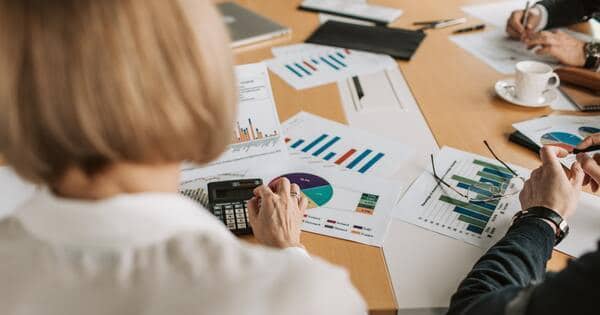Most school systems around the world train their students to look up to experts, with their sterling academic degrees. In the field of investments, many read or watch the typical respectable news sources like CNBC, Financial Times, Wall Street Journal, and other well-known financial publications. Often experts in economics, business leaders, thought leaders, fund managers, and others share their insights.
Many times, these experts don’t agree. As the more humble ones admit, they could be wrong in their outlook on the future. Take their individual advice with a little grain of salt, but do pay attention to what the herd of experts are saying as a group.
What would be useful is a scorecard on whether experts get their future predictions right on a regular basis. But in reality it would also be unfair because we are all just human. Unless of course an AI like Chat GPT is the one making the predictions. Then we should publicly measure its success rate.
Nassim Nicholas Taleb, the author of “The Black Swan” and statistical risk expert is deeply skeptical of experts in fields like economics. Some of the analogies he uses to compare people who use the past to predict the future include a turkey who is enjoying the special feeding treatment being given to it, right up to the time it gets prepared for a Thanksgiving meal.
Several factors impact whether we get our forecasts wrong, even when we make our own predictions. Our own personal biases come into play. This is especially true for experts who have spent their life studying a particular economic phenomenon from the past. After all, what is the use of a hammer if there are no nails to hit? Before experts can come up with a model, they need to identify their own assumptions about the world. It is also borne out of our own personal experiences, from what we have personally seen or read about.
There is however no way in the world that any human expert can read or find out every piece of key information out there. There will always be some type of information asymmetry that blindsides us. FTX/Alameda is just the latest example of that. All the rosy predictions that came with Sam Bankman Fried’s ventures went out the window when we found out what he was really doing. The same was true for Enron and Bernie Madoff. Unfortunately, we didn’t know the internals of all these frauds. Even Fried’s close investor friends like Kevin O’Leary, and respected investment firms like Sequoia Capital and Tiger Global were also blindsided. There is no way we can know everything. There will always be information asymmetry.
The problem is if the assumptions are wrong. We just came from a global pandemic, which isn’t really over yet. Global central banks printed so much money that inflation has taken hold in many economies. A European war has impacted energy and food/grain supplies globally. Clearly many of our pre-COVID assumptions no longer hold. Maybe some will still hold true, but some have definitely changed.
One assumption that has changed is the way many of us view work. The gung ho work attitude of devoting most of our lives to our work and careers has changed for many during and after the pandemic. There is now a realization that there are other important things that people would like to do and achieve outside of making the extra money to buy that second home or fourth car.
Experts often get forecasts wrong. Take Bitcoin for example. Many technical analysts were predicting it would probably bottom around $9,000-13,000 before rising. The recent early January 2023 run started from around $16,000 and went up to the low $20,000s in mid February. Of course, anything can still happen like a long sideways movement, a sudden unstoppable rise, or a crash.
Likewise media pundits wrote off Solana late 2022 when the FTX/Alameda debacle happened. Everyone wrote off the token, disregarding the fact that there is a fiercely loyal tribe of Solana fans who snatched it up at around $8. As of late January 2023, it was trading roughly 300% up, in the mid $20 range.
In both crypto examples above, it is important to note that anything can still happen. Experts are still predicting a recession or hard times ahead. No one is still predicting a bull market. But the January crypto rally did surprise many.
This is not to say that you should stop listening to the experts. It is however important to listen to many experts, and not just a handful, then decide based on your own experience and biases how you will approach the world. It is dangerous to base your investing on nothing, or purely on what media interviews and experts say. You need to do a deeper due diligence, but realizing in the end that sometimes your gut feeling is just as important.
Taleb makes the argument that rather than being too hung up on trying to be correct in terms of predictions, it is better to be prepared for any eventuality. He calls this property “anti fragility,” which is also based on the title of his book. Having different investment instruments for different economic conditions for example is an example of becoming antifragile.
We are not all rational beings who will act logically. We have emotions and our money is our skin in the game. Our hormones act up to either react with fear or be greedy, which ends up sabotaging our investments sometimes.
In the end, as George Soros said, “It’s not whether you’re right or wrong, but how much money you make when you’re right and how much you lose when you’re wrong.”

